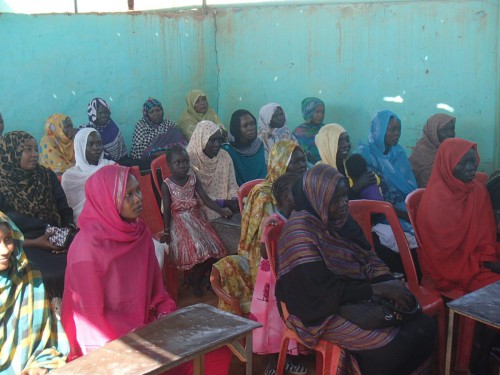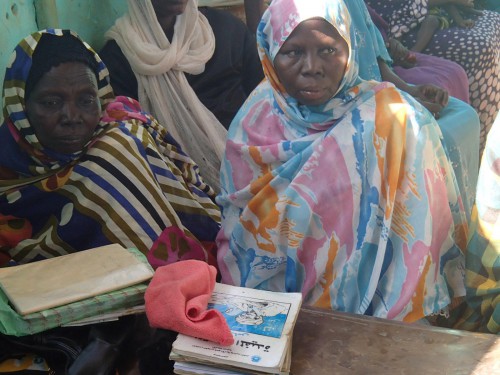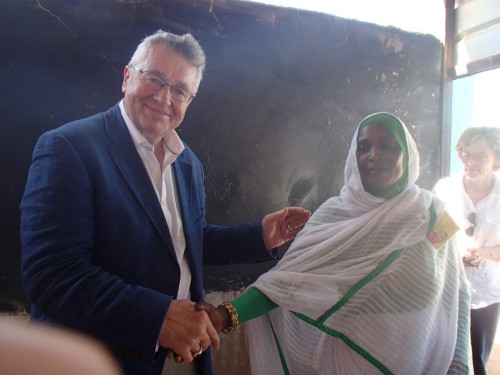3rd November 2014
Pockets of Hope
I recently met Peter Hullah and his colleagues who lead the “Women’s Education Partnership” a small British NGO working in Sudan to support women’s literacy. They are doing great work and we are delighted to be able to give them some modest help. Here is their story.
“Listen to the disadvantaged and displaced women and do what they tell you”. The founder of Women’s Education Partnership (formerly Together for Sudan) Lillian Craig Harris always reminds us to focus on the needs of the most vulnerable – the women – and take action.
For over 15 years we have being doing exactly that in Sudan and South Sudan and as we listen, we hear the women yearn for education, for literacy and for better health for themselves and their children.
In response, we have tried to open doors and we have supported women to go to university. We have selected those most needy women who can gain a place but whose lives have been disrupted by circumstances outside their control.

Over 300 Together for Sudan women students have now graduated from Ahfad and other universities in Khartoum and we now also have our first graduates from the University of Juba. The undergraduates tell stories of how they have had to struggle and our graduates tell us of the possibilities they now have to gain jobs.
Among our graduates we find teachers, doctors, lawyers, businesswomen and scientists. Whether employed or not, we learn from them first hand that their education has given them the power to change family life and the life of a nation for good.
We are active in promoting adult literacy in places where there is most need among the vulnerable women and we pay for classes which serve over 300 displaced women. Alongside our generous personal, corporate and trust donors, we have recently been awarded a grant by the British Embassy in Khartoum enabling us to continue with 10 literacy classes for the women.
We reach out to help female teachers who are working in some of the poorest elementary schools. We know that over 3500 children benefit and our teachers are supported to take special care of the orphan children in their schools.

In October 2014 I visited both Sudan and South Sudan, meeting our students and visiting schools. In faraway places on the edge of Khartoum we saw firsthand some of our women teachers at work. We have been asked by the women to provide basic eyecare and to bring education materials about HIV/Aids. Where possible in both countries we are doing this.
We are a small UK registered charity and we have changed our name to Women’s Education Partnership to reflect the needs of both Sudan and the new nation of South Sudan. Our work in the educational projects in Sudan has been approved by the authorities at the Humanitarian Aid Commission (HAC) and the Ministry of Education. We monitor very carefully the money we spend and we have only 3 paid, highly dedicated staff in our office in Khartoum. Much of our energy and commitment comes from volunteers, supporters and donors across the world.
Travelling to places in Sudan and South Sudan which show the scars of conflict, I saw our education projects making a difference. In both countries we listened to the most disadvantaged women and we talked to our distinguished local patrons. Their message was clear: continue to focus on literacy and give even more opportunities for women, young and old to have access to education.

One of our patrons, Samia Omar, founder of an IB World School in Khartoum, told me, “The education of disadvantaged women is the only way forward. It’s the only hope and unless we are able to do that, the future is quite bleak. It is vital that women in particular take the lead in places which are tired of war and conflict. There are pockets of hope in Sudan and Women’s Education Partnership is definitely one of those pockets.”
Despite the many obvious challenges, we are able to bring that sense of hope to women whose lives otherwise may seem hopeless. We work personally, on a small scale. However, for the women we believe that big change comes from small beginnings and that when education unlocks the talents of the most disadvantaged, there is hope.
Thank you for your generous support so we can do more.
Peter Hullah
Director
Women’s Education Partnership
October 2014